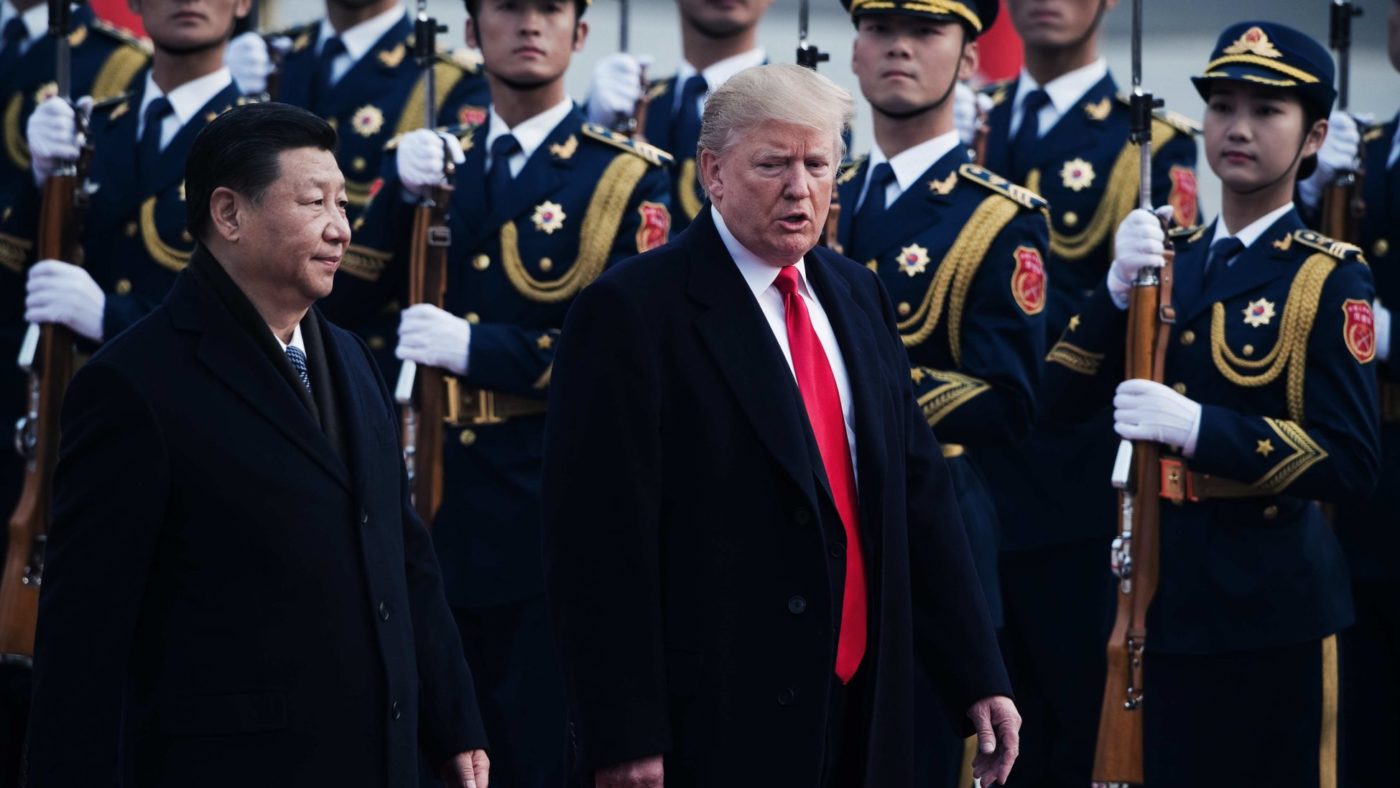Is the great trade war coming to an end? America and China have been making a show this week of having settled at least some of their differences as they inch towards signing ‘phase one’ of a new trade deal.
Whether this proves to be a long-term armistice or simply a truce designed for domestic audiences remains to be seen. One thing is for sure: a rising, increasingly muscular China isn’t quitting the international stage any time soon.
And so the question for the UK as it sets out on its quest to become ‘Global Britain’, is how to navigate the choppy waters of this great power rivalry without being cut adrift from either?
Admittedly, Britain’s own position on China has been even more absurdly amorphous than America’s. We’ve gone from denouncing human rights abuse and resisting bullish behaviour in the South China Sea to proclaiming a ‘golden era’ of trade and investment – and then back again – in under a decade. We placed vital infrastructure in the hands of Beijing, before realising (with a little help from America) that giving the Chinese state the keys to, say, Britain’s communications network, might not be the best idea after all.
Now we are hoping to sign comprehensive Free Trade Agreements with both China and the US. But Donald Trump’s record on trade is hardly encouraging. This is a President who sees negotiations in brutally Darwinian terms: one side wins, the other loses. And the winner he wants to turn into a loser is China.
The US’s renegotiated deal with Mexico and Canada (USMCA) offers us a glimpse of how this can play out. There, in a bid to isolate Beijing, America inserted a ‘poison pill’ clause which allows any member of the deal to terminate the whole thing if another country concludes an agreement with a nation they deem to be a ‘non-market economy’ – such as China.
There’s wiggle room in that phrase for sure, but it’s not difficult to imagine how this could become problematic for the UK. After all, US Trade Representative Robert Lighthizer declared that the USMCA will serve ‘as a template for our trade agreements’ under Donald Trump. In such a scenario, which way does Britain steer?
And it’s not just trade that makes this relationship so potentially disruptive – as China expands its global influence, it is inevitably brushing up against American interests in the process.
Take recent events in Iran.
For all the focus on Vladimir Putin’s increased presence in the Middle East, it is actually Beijing that has long been Iran’s most significant friend on the world stage. They co-ordinate on regional security (along with Russia), and are the largest importers of Iranian oil.
Yet in recent months American sanctions have started to take their toll: China have been reducing their energy imports from Tehran, partly in the belief they can rely on other, mostly Middle Eastern, sources.
The Iran crisis threatens to punch a hole in that plan. Further disruption in the region could see the world oil price rocket and China’s energy security threatened – while America sits pretty, with greater oil reserves and a more diverse energy portfolio. Yet the crisis could also open up a ‘window of strategic opportunity’ for China, with America choosing to get bogged down in the Middle East once again, freeing Beijing to pursue its own priorities elsewhere, as they did in the decade of American distraction after 9/11.
The truth is that neither China nor America’s interests are best served by the Iran situation escalating.
The most likely strategy for America is containment, and this puts China in a strong position since containing Iran will require China’s help – either by covertly mediating between the parties or by backing up a new sanctions regime, as they have done in the past.
This new leverage would mean Trump couldn’t afford to antagonise China, and the ‘poison pill’ that could undermine US trading partners’ hopes with Beijing would find itself back in medicine cabinet – although the President is seldom that predictable.
So yes, the trade war might be coming to an end. But this is just the start of another chapter in a rivalry that will shape the century. If during this stalemate Britain can negotiate the outlines of a US-UK trade deal, we could find that China’s window of opportunity is in fact our own.
Click here to subscribe to our daily briefing – the best pieces from CapX and across the web.
CapX depends on the generosity of its readers. If you value what we do, please consider making a donation.


